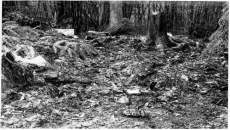“We frame this as a multicultural approach, in which anyone can partake. With this breadth, there is both Sikh history applicability and community building. Students interact with Sikhs in their daily lives and want to learn more about Sikhism,” says Dr. Harjeet Grewal.
“One of the main impacts this program will bring is self-confidence. Many students sometimes feel under-confident and don’t feel up to par when it comes to their Sikh heritage. When you learn more, you have more to be proud of,” says Jay Dhillon.
Canada is home to the largest population of Sikhs in the Sikh diaspora. With over 700,000 Sikhs in the country, it is no surprise that the time has come to reflect and represent Sikhism in the education system. Hoping to accomplish just this, the University of Calgary is soon slated to launch the nation’s first-of-its-kind Sikh Studies program, spearheaded by a dynamic duo.
Jay Dhillon, currently pursuing a Degree in Law from Thompson Rivers University’s Faculty of Law, took an introductory Sikh studies course with Dr. Harjeet Grewal in 2017. For him, the class was very engaging and interesting, laying out Sikh philosophies and principles, alongside its evolution over time in the world and in Canada. Further conversations led Dhillon and Dr. Grewal to realize that there is no real Sikh Studies program in Canada. Some universities do offer courses about the Punjabi language, but no programs exist focused exclusively on Sikhism. The student and professor decided to take matter into their own hands.
While Dhillon’s interest in the creation of the program bloomed after taking the course, Dr. Grewal has practically grown up with a keen interest in Sikhism. Born in British Columbia, Dr. Grewal moved to Edmonton in the 1980s and was raised in Alberta. As an undergrad, Dr. Grewal specialized in Molecular Genetics at the University of Alberta for four years. However, he was personally attached to Sikhism and wanted to know more about it. This led him to attending the University of British Columbia for Asian Studies, where he became especially interested in the intellectual components of Sikh traditions and often found himself questioning why they had not been highlighted enough. Throughout his Masters, he was quite engaged in the philosophical and literary aspects of Sikh literature and began to further his interest by pursuing at the PhD level at the University of Michigan. In his works, he studied the structure of the literature what is embedded in it in terms of ideas.

Recognizing the valuable stories, literature, and poetry such a program could bring to the table, Dr. Grewal and Dhillon started the journey towards creating a legacy through the establishment of a Sikh Studies program at the University of Calgary. Alongside his active involvement, Dr. Grewal describes the initiative to be one that is student-led. Benefitting from the currently-offered course content and Dr. Grewal’s teaching style, students began connecting with alumni, other students, and community members to kickstart a Sikh studies program. “One of the main impacts this program will bring is self-confidence. Many students sometimes feel under-confident and don’t feel up to par when it comes to their Sikh heritage. When you learn more, you have more to be proud of,” says Dhillon.
While a positive aspect of the program will entail a learning opportunity to become better Sikhs, the courses will not just be limited to Sikh Students. For non-Sikh students, such courses encourage acknowledgement of Sikhs, and a better understanding of their Sikh classmates and co-workers. Dr. Grewal describes, “We frame this as a multicultural approach, in which anyone can partake. With this breadth, there is both Sikh history applicability and community building. Students interact with Sikhs in their daily lives and want to learn more about Sikhism. Even in current courses, we have had students from every background you can imagine.”
Dr. Grewal’s stance is that we are still coming into grips with where we are within our country. The gap right now is a knowledge gap. Allowing people who want to learn more to see who Sikhs are and how those teaching can be applied to one’s daily life enables closure of that gap. Dhillon shares that he still takes learnings from the course he took and applies it in his life, “While attending law school, I constantly ask myself how I can be an advocate for voices that are not really spoken for. The values of autonomy, liberty, and justice are always at the back of my mind and I am striving to integrate my Sikh values into becoming a better law student. The courses can be applied into becoming a better teacher, doctor, engineer, worker, and human.”

As of now, University of Calgary does offer an Introduction to Sikhism course, which explores the components of key Sikh concepts, central texts, and main practices. Dr. Grewal details that the second course offering will be a course surrounding Sikh diaspora and what it means to be a community that is living in a hostile atmosphere laced with racism and antagonism. Further, a course on Sikh philosophy will touch on themes of social justice, Sikh ethics, and what it means to be human. Sikh literature courses will dive into a range of early texts, colonial writing, and the transition to modern writing. “The intention is to extend these courses so that students can exhaust the option to minor in Sikh Studies,” explains Grewal. The program will maintain focus on language and literature. Course related to culture and higher-level courses to do with themes on religion will be offered. Sikhs in modernity, democracy in Sikhism, multiculturalism in Sikhism, and contemporary issues are expected to branch out from the program.
The long-term vision, however, is to create a Chair for the Sikh Studies program. This would be the first in Canada, allowing for a research component that could become the catalyst towards a more multidisciplinary approach. “Simply put, there is not a lot of research out there about Sikh Studies. Having a chair allows for research, a dedicated focus and a voice that has the program’s best interests at heart,” Dhillon articulates.

When it comes to the University of Calgary, the university has been on board since the very beginning. As per Dr. Grewal, they have risen beyond expectations and have gone to great lengths to understand the Sikh community’s history. For the university, this is one of their top projects and the team is getting the most support from the Arts side. Dr. Grewal shows utmost appreciation for the encouragement, “It is just so beautiful that we can come together. Right from the beginning, I felt the kirpa (grace) – all these things came together in a beautiful way. You couldn’t ask for more genuine engagement.”
Outside the university, the larger community has also been onboard. Thus far, funds raised to support the program are just shy of $500,000 and the community continues to give. The team is eager to continue reaching out to the community and chat with anyone that wants to collaborate. Dr. Grewal encourages people all over the country to keep a watch, via social media platforms and in the community, on how they can get involved and provide feedback.
Ultimately, the Sikh Studies program is an initiative that every Canadian – especially Sikh Canadians – should be immensely proud of. As the program continues to grow, the impact is beyond powerful. For future generations, this initiative creates an accessible space for having important conversations through actively engaging with knowledge and connecting with each other.






